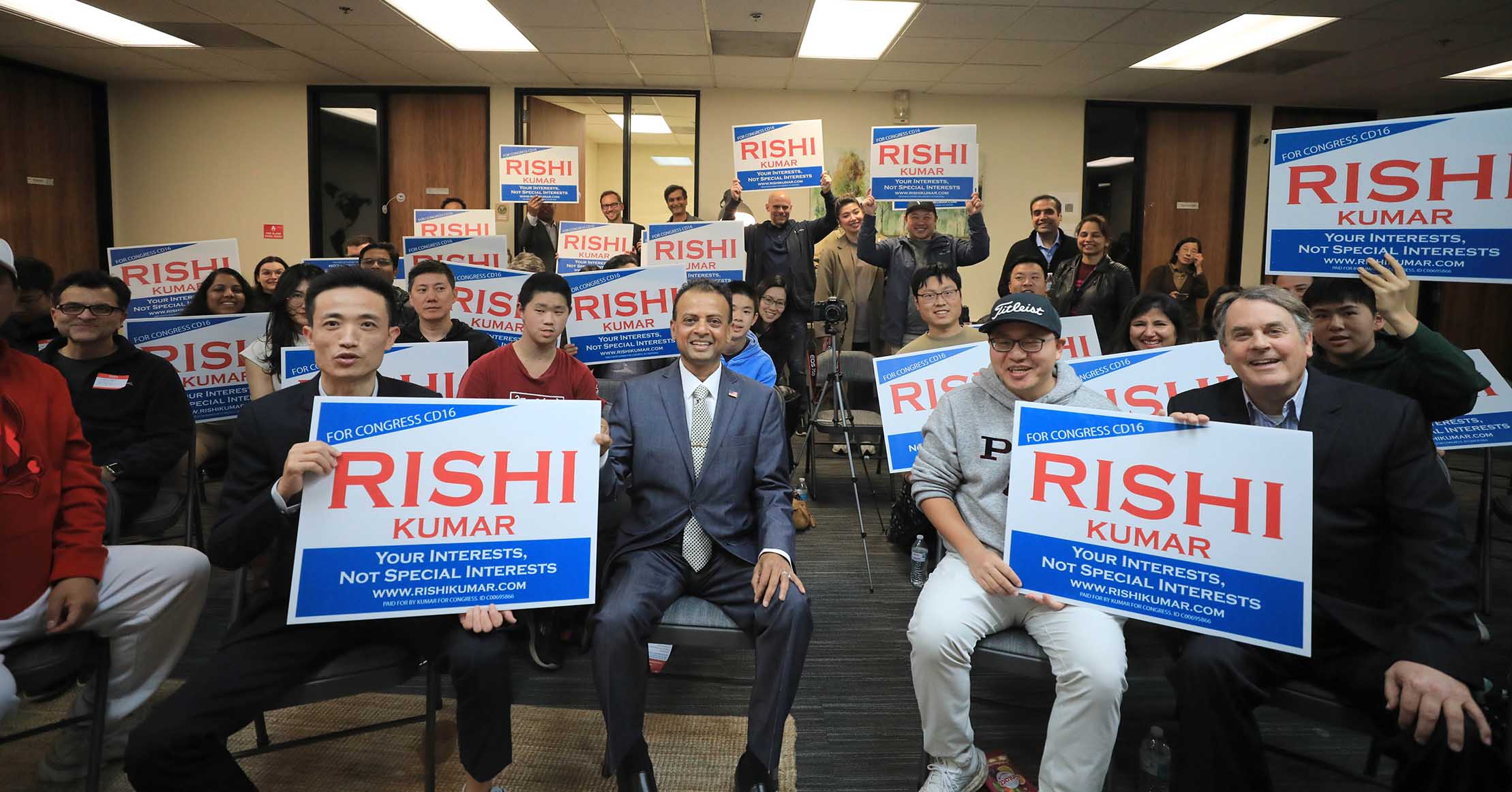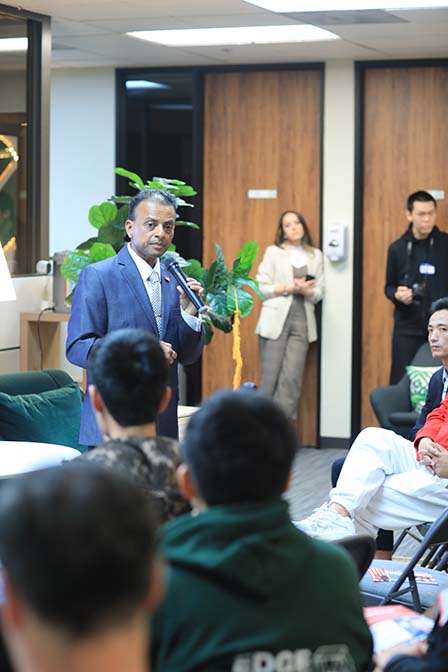

Artificial Intelligence (AI) has emerged as a powerful and pervasive technology with the potential to reshape the way we work and live. Recognizing the far-reaching impact of AI, governments around the world are increasingly considering regulatory frameworks to govern its development, deployment, and use. This paper provides a concise overview of the opportunities presented by AI (especially within Silicon Valley) and proposes regulatory guardrails for its development and implementation.
AI has already begun to revolutionize the way we live and work. In healthcare, it promises to enhance diagnostics and personalize patient care. It will help us to combat climate change by optimizing energy use, accelerate the development of renewable energy sources, and enhance environmental monitoring and protection. In education, AI can tailor curricula to individual needs, provide effective virtual tutoring, and even automate much of the time-consuming work teachers now devote to grading. In transportation, AI can also optimize traffic flow and design safer air traffic systems. In the sciences, AI allows teams to analyze massive data sets in little time, speeding the pace of discovery.
In Silicon Valley, the development of increasingly sophisticated AI automation frameworks will soon drive our economy. Like semiconductors and the Internet, AI promises to create tremendous economic opportunities for our region. The stakes are high: Goldman Sachs estimates that generative AI alone will add $7 trillion to global GDP over the next decade. We cannot afford to let other regions and nations take the lead from us on AI development. Our economic future depends upon maintaining our role as the primary engine for AI development.
The raw power of AI means that we cannot develop and implement it without effective guardrails. AI must reflect our social values. We must establish firm guidelines, for example, to ensure that we collect source data in an ethical manner and that AI frameworks do not exacerbate existing forms of discrimination. Guardrails are also necessary if AI frameworks are to be sufficiently safe, robust, and resilient to mitigate risks to public safety. Finally, we must ensure that we define clear guidelines for the responsible collection, storage, and use of personal data in AI applications.
The dynamic nature of AI development makes it difficult for regulators to keep pace with emerging technologies. For this reason, we must adopt flexible regulatory frameworks that accommodate innovation while addressing potential risks, such as the monopolization of AI development and access by a handful of large corporations. These guardrails must also be globally standardized to avoid fragmentation and ensure consistency. Striking a balance between fostering innovation and ensuring responsible AI use is a delicate task. Regulations must encourage technological progress while addressing the ethical, legal, and societal implications of AI.
Government regulation of AI reflects a growing recognition of the need to balance innovation with ethical considerations and societal well-being. Striking the right regulatory balance is essential to harness the benefits of AI while mitigating potential risks. This is of particular importance in Silicon Valley, given that our future economic growth depends on maintaining our leadership role with respect to AI. In the end, governments, working with industry stakeholders and the public, play a pivotal role in shaping a responsible and sustainable future for AI development and deployment.


Question: With deep roots in the Silicon Valley tech landscape, how do you envision the future of AI shaping technology, this region's economy, and technology development?
Answer: Rishi provides a comprehensive response, drawing on his Silicon Valley experience. He reminisces about visiting the HP garage and witnessing the dynamic changes in Silicon Valley over the past two decades. Rishi asserts that AI, when harnessed correctly, brings efficiency to various aspects of life, citing personal use cases with tools like ChatGPT, Bing, BART, and CLART.
Rishi counters negative perceptions of AI, likening it to historical technological advancements. He emphasizes AI as a force for good and efficiency, debunking claims that label it as "the big evil." Drawing parallels with historical advancements, he highlights AI's transformative potential, making an analogy to the steam engine.
The speaker delves into current legislative proposals, specifically critiquing Senator Scott Wiener's bill. Rishi argues for a fair approach in AI policy, especially for startups, and advocates for a national-level pragmatic policy to position the U.S. as a leader in the global AI arms race.
In conclusion, Rishi underscores the imperative for strong leadership to propel the U.S. as an innovation economy, dominating the world with AI technologies across various verticals.
Question: In which areas are great AI companies more likely to emerge?
Answer: Rishi responds comprehensively, envisioning AI companies emerging across various verticals. He notes the potential impact on professions such as graphics design and technical writing, acknowledging the accompanying job loss. Rishi stresses the importance of retraining workers for the evolving AI economy.
He highlights the influence of AI in enterprise settings, citing IBM's introduction of enterprise-level LLMs impacting retail, banking, finance, and healthcare. Rishi expresses a global perspective, anticipating a dramatic impact on the entire world with increased optimization and prosperity.
Rishi discusses the need for a paradigm shift in traditional workdays, drawing inspiration from Andrew Yang's Universal Basic Income (UBI) proposal. He encourages further exploration of specific examples within each vertical during the ongoing conversation.
Question: So how do you support AI startups in the Bay Area? What are your policies and initiatives?
Answer: Rishi rejects the notion of AI as the "big evil" and, as someone positioned to be the first tech-savvy leader in Congress from Silicon Valley, proposes the establishment of innovation hubs. These hubs would be distributed across different regions within the district, such as East Bay, South Bay, Peninsula, and the coast side. Rishi envisions federal government-funded programs supporting innovators, young students, and professors, creating an ecosystem for innovation.
He emphasizes the need for federal funding to drive innovation in Silicon Valley and highlights the potential of vacant land like Moffett Field for creating these innovation hubs. Rishi draws attention to his successful initiative in rolling out the K-12 computer science curriculum program in California, expressing the importance of STEM education.
As a policymaker, Rishi aims to propagate similar initiatives nationwide, advocating for the teaching of AI and ethics to young children. He believes that instilling this knowledge early will help create a future generation well-versed in the challenges and opportunities of artificial intelligence. The overarching goal is to ensure that every startup, irrespective of location, has the opportunity to succeed in the realm of AI.
Question: Given your experience in public service and technology, how do you see AI being effectively integrated into public services and governance to improve efficiency and accountability?
Answer: Rishi addresses the question by highlighting the need for AI integration in public services and governance. Drawing parallels with the challenges faced in implementing a national electronic medical record (EMR) system, Rishi proposes the creation of large language models (LLMs) specific to the public sector. He envisions an "AI administration" at the federal level, similar to the Food and Drug Administration (FDA), to oversee and regulate AI in government.
Rishi outlines potential applications, such as using AI models to provide better services for Medicare programs or economic indicators. He emphasizes the need for scientific approaches in managing the economy through data-driven decision-making. The overarching goal is to build LLMs at the public sector level, providing a competitive advantage for the U.S. by enhancing efficiency and transparency.
In specific examples, Rishi envisions using AI models to simplify public record requests, making information more accessible and streamlining bureaucratic processes. He calls for collaboration and assistance to bring these ideas to fruition, acknowledging the potential efficiencies that can be achieved in the public sector with the right implementation of AI.
Question: The AI industry requires a highly skilled workforce. What strategy do you propose to enhance STEM education and workforce development in AI and machine learning?
Answer: Rishi acknowledges the crucial need for a skilled workforce in the AI industry. He emphasizes the importance of providing STEM education, particularly in AI, starting as early as ninth grade.
Rishi envisions transforming economies traditionally reliant on industries like coal mining by offering AI education. He believes this approach will empower individuals to explore new paths and contribute to the creation of prosperity across various regions in the U.S.
Question: With the advancement of robotics, do you think there will be more layoffs in the future, and how would you address this?
Answer: Addressing the concern of potential layoffs due to automation, Rishi draws parallels with historical technological shifts. He underscores the necessity for agility and ingenuity in adapting to technological changes.
Rishi envisions a future where increased efficiency might lead to a reduction in workdays, promoting a healthier work-life balance. Contrary to the concept of Universal Basic Income (UBI), he advocates for creating numerous jobs, retraining the workforce, and empowering individuals to stay productive and engaged in a rapidly evolving world.
The event is recorded in four segments.



